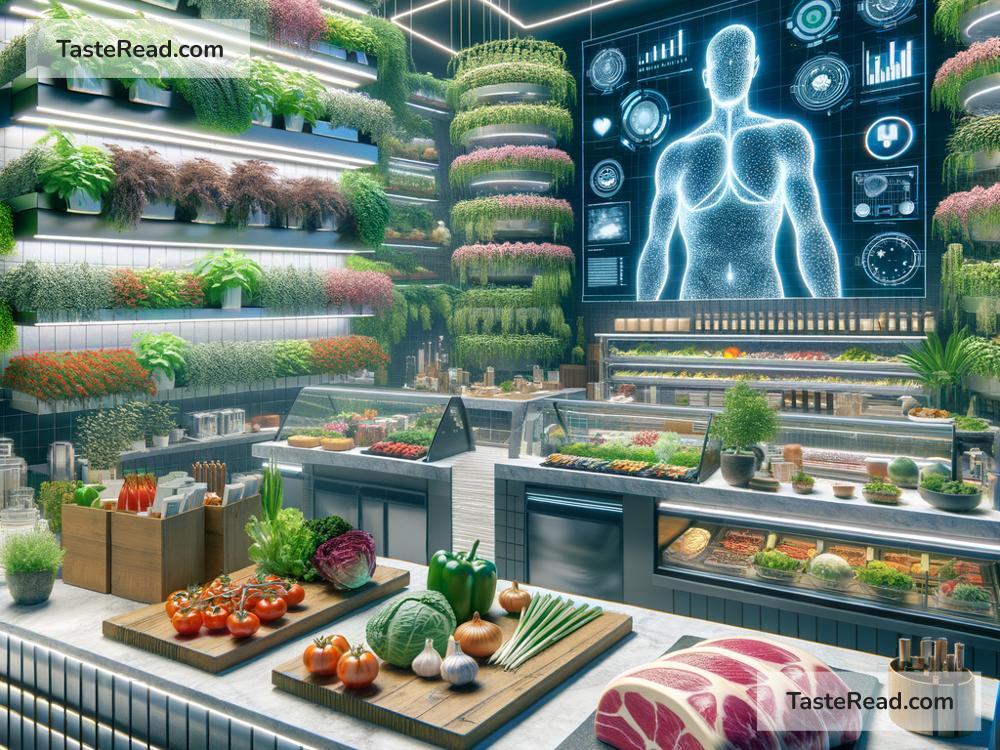The Future of Food and Ethical Supply Chains: Building a Better Tomorrow
Food is one of the most important parts of our lives. It fuels our bodies, brings people together, and plays a huge role in shaping cultures around the world. But as the global population grows, climate change affects farming, and businesses expand, many are asking: where will our food come from in the future? And how can we make sure it’s produced in a way that’s fair and sustainable?
In this blog, we’ll explore what the future of food might look like and the critical role ethical supply chains will play in reshaping how food is grown, transported, and consumed. We’ll simplify complex ideas to help everyone understand this vital topic.
The Future of Food: Where Are We Headed?
As we move forward, it’s clear that the food industry needs to adapt. Traditional farming methods often rely heavily on water, land, and fertilizers that can harm the environment. With climate change causing unpredictable weather, farmers are struggling to grow crops the way they used to. On top of that, the world population is expected to reach nearly 10 billion by 2050, meaning we’ll need to produce even more food.
Scientists, farmers, and innovators are working on exciting solutions to address these challenges. Here are a few trends that point to the future of food:
1. Alternative Proteins
Meat production uses a lot of resources—land for grazing, water for animals, and grain for feed. It also contributes to greenhouse gas emissions. As a result, many companies are creating alternatives like plant-based meats and lab-grown protein. Brands like Beyond Meat and Impossible Foods are already popular, offering tasty substitutes for burgers, sausages, and more. Meanwhile, lab-grown meat—grown directly from animal cells—is an emerging solution that could drastically reduce environmental impact.
2. Vertical Farming
Instead of growing crops on large fields, vertical farming uses indoor spaces stacked with shelves of plants. These farms rely on LED lights and controlled environments, which minimize water usage and eliminate the need for pesticides. Vertical farms can grow food year-round, even in urban areas where land is scarce. This makes them a potential game-changer for feeding cities efficiently while reducing transportation costs.
3. Food Waste Reduction
About one-third of the food produced globally is wasted. This happens in supply chains, supermarkets, and households. New technologies and apps are being developed to reduce waste, either by redistributing extra food to those in need or by turning waste into valuable products, like compost or animal feed.
4. Tech in Agriculture
Robots, drones, and other advanced technologies are being increasingly used on farms. These tools can monitor crop health, plant seeds, and harvest food with greater speed and precision. Artificial intelligence (AI) can also help farmers predict weather and soil conditions, making agriculture more productive and less wasteful.
Why Ethical Supply Chains Matter
A supply chain is the journey food takes to get from the farm to your plate. It includes growing crops, raising animals, transporting goods, and selling products in stores. Unfortunately, many supply chains today are not ethical. Workers may face poor conditions and low pay, forests may be destroyed for farmland, and animals may be treated poorly.
Ethical supply chains aim to fix these problems. They ensure that food is produced responsibly, with care for people, animals, and the planet. So, how does this actually work?
1. Fair Treatment of Workers
Millions of people work in agriculture and food production, yet many of them earn low wages and live in poverty. Ethical supply chains focus on paying workers fairly and offering safe working conditions. Certifications like Fair Trade ensure products like coffee, chocolate, and bananas are made by workers who are treated with respect.
2. Sustainable Farming
Ethical farming practices avoid harming nature and don’t use up resources faster than they can be replaced. For example, sustainable farming might include rotating crops to keep soil healthy, using water efficiently, and avoiding synthetic chemicals that pollute the environment.
3. Better Animal Welfare
Ethical supply chains prioritize treating animals with dignity, whether they’re raised for food or used in farming. This includes giving them more space to roam, improving their living conditions, and stopping unnecessary cruelty. Labels like “Certified Humane” verify that animal products meet these standards.
4. Transparency
Consumers increasingly want to know where their food comes from. Ethical supply chains promote transparency by sharing information about how products are made. Technology like blockchain can document every step in the journey, so customers can make informed choices.
What Can You Do?
Consumers have the power to shape the future of food through their daily choices. Here’s how you can contribute:
- Buy Fair Trade Products: Look for labels that ensure workers and farmers are treated fairly.
- Support Local Farmers: Purchasing food directly from local markets cuts down on transportation and boosts small-scale farming.
- Reduce Food Waste: Plan meals carefully, use leftovers, and compost scraps.
- Try Alternative Proteins: Plant-based and lab-grown foods are delicious and eco-friendly alternatives to traditional meat.
Conclusion
The future of food is full of challenges—but also opportunities. Innovations like alternative proteins, vertical farming, and food waste reduction show promise for feeding the world while protecting the planet. At the same time, ethical supply chains are key to ensuring this future is built on fairness and sustainability for everyone involved.
By making informed choices and supporting ethical brands and practices, we can all contribute to a brighter, healthier, and more equitable food system. Because at the end of the day, every meal we eat has a story—and we have the power to ensure it’s one we’re proud of.

